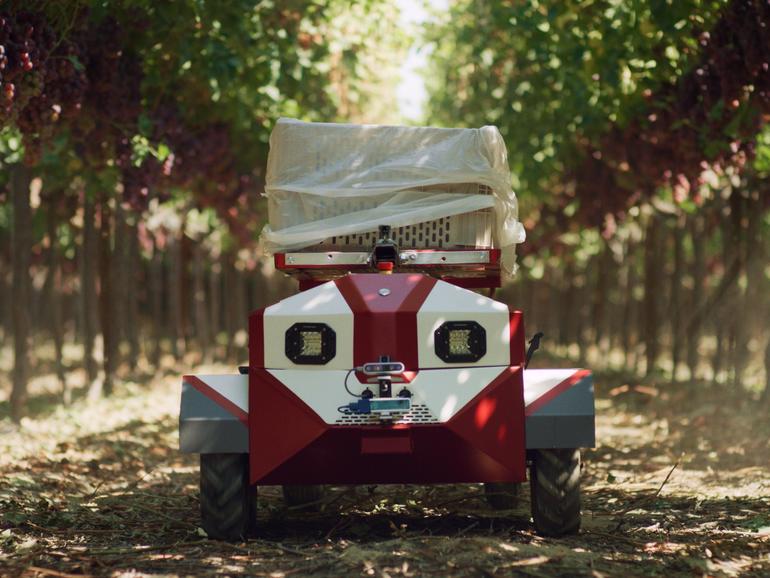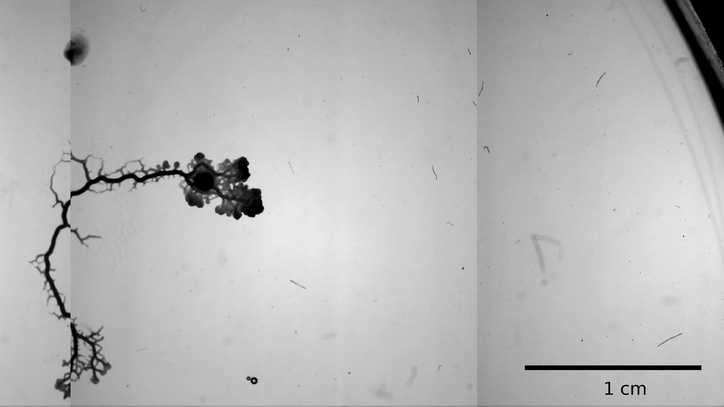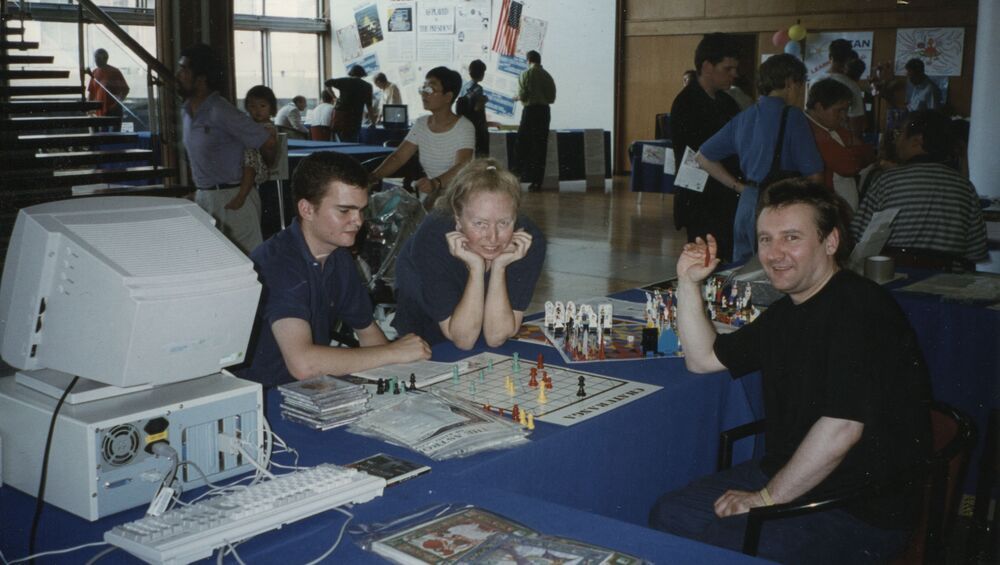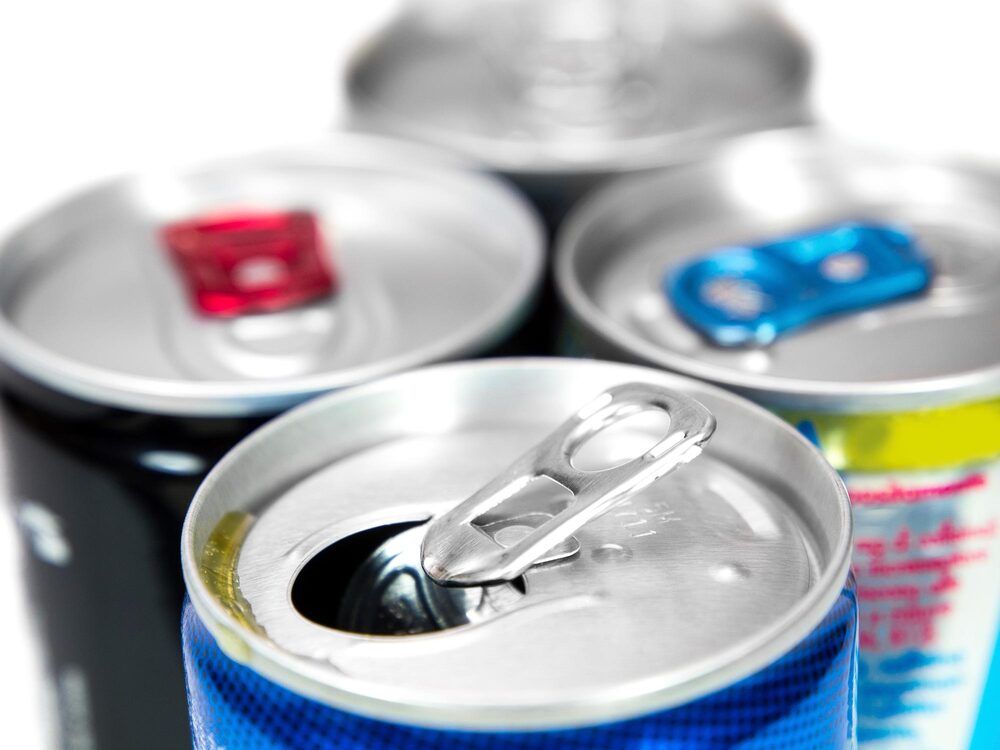To feed 10 billion by 2050, the world’s farmers will need to increase food production by up to 70%. Bring in the robots.



Founded as a resource to prevent food waste, the CropMobster network has grown into an online platform for farmers, food activists, and pantries to exchange resources. Designed to “ignite food system crowdsourcing,” CropMobster empowers local leaders to connect communities interested in sharing or trading goods, labor, excess food, events, and news to help end hunger and reduce food waste. CropMobster was established in the in 2013 and has expanded to serve farmers and local food leaders throughout California and the West Coast.
Food Tank interviewed CropMobster CEO and Co-Founder Nick Papadopoulos to learn about the recent additions to CropMobsters’ sustainable food networking platform since Papadopoulos spoke at Food Tank’s 2016 Farm Tank Summit in Sacramento.

This art installation enhances plant growth while taking pesticides out of the equation through ultraviolet light. The GROW project shines vertical lights across 215000 square feet of farmland creating a luminous dreamscape that highlights the beauty of agriculture, and displays nature as the ultimate work of art it is!
📹 @roosegaarde via IG.


Blog — Bundex Film Archives coming to posthuman university.
As editor, sound engineer and roadie with director Bunny Dexter’s “Bundex Films”, the three of us (Eugene Smith was cameraman) travelled to various parts of the world making political, environmental and quirky documentaries during the first age of digital video. Bunny was also a judge at some international film festivals, and we actually won an award in Poland for one of our films. At NY film school, Bunny’s teacher was Marty Scorsese, who would call at Bunny’s flat sometimes when in London. We made two versions of a 3D hologram of Marty, of which he has one and I the other. After Bunny’s passing I inherited the huge shoulder-harnress digital camera which remains in my garage and has less capability than a modern smartphone, digital tape-decks and lots footage together with all rights, except for the lost Orson Welles tapes matter and story of his aristocratic Sicilian producer. More about this and other films later. I have boxes to sort through, and am sure I have forgotten some projects which will come as a surprise when I rediscover them. Will post at posthuman university side when sorted, this footage give unique insights from a period of very rapid evolution and transformation in film-making.
Documentaries include the Homeless and their Dogs, Gipsy persecution in Hungary, a study of Tattoo’s and Tattoo artists, Momento Mori – a film of an elderly lady after her death, and our pursuit of Cocoa plant agricultural sabotage in Brazil. There is unseen footage from these and other films, and interviews with Bunny before her death which I will edit together. She had an interesting life including appearances in Andy Warhol movies, and early success with a short film with Hollywood beckoning. Woody Allen was in her NY film school class, and many of her friends went on to become big stars, but B was too much of a socialite, and was unable to get her screen plays produced. At least one political biography that I have is very good, I might update it for sub-Hollywood production in the future. Anyway, Bunny had an interesting “career” and was close friends with Yoko & John Lennon from her guerrilla art days, Jimmy Hendrix, also Graham Chapman and some of the Pythons.
Yumm… mushrooms. 😃
The startup Cycloponics is growing 100–200 kilos of mushrooms a week in underground parking lots in Paris, Strasbourg, and Bordeaux.

“Figures published in 2011 suggest that, in Australia, producing wheat and other grains results in: at least 25 times more sentient animals being killed per kilogram of useable protein more environmental damage, and a great deal more animal cruelty than does farming red meat. How is this possible? Agriculture to produce wheat, rice and pulses requires clear-felling native vegetation. That act alone results in the deaths of thousands of Australian animals and plants per hectare. Since Europeans arrived on this continent we have lost more than half of Australia’s unique native vegetation, mostly to increase production of monocultures of introduced species for human consumption. Most of Australia’s arable land is already in use. If more Australians want their nutritional needs to be met by plants, our arable land will need to be even more intensely farmed. This will require a net increase in the use of fertilisers, herbicides, pesticides and other threats to biodiversity and environmental health. Or, if existing laws are changed, more native vegetation could be cleared for agriculture (an area the size of Victoria plus Tasmania would be needed to produce the additional amount of plant-based food required). Most cattle slaughtered in Australia feed solely on pasture. This is usually rangelands, which constitute about 70 per cent of the continent.”
Going vegetarian, or even vegan, to minimise animal suffering and promote sustainable agriculture, actually kills more sentient animals living in vegetable crops that livestock farmed in paddocks.

Popular energy drinks may give you a boost, but they may also contribute to possible serious heart conditions, findings show.
A team of researchers, led by a Texas A&M University professor, has found that some energy drinks have adverse effects on the muscle cells of the heart.
The study, led by Dr. Ivan Rusyn, a professor in the Veterinary Integrative Biosciences (VIBS) Department at the Texas A&M College of Veterinary Medicine & Biomedical Sciences (CVMBS), was published in Food and Chemical Toxicology. In it, researchers observed cardiomyocytes – human heart cells grown in a laboratory – exposed to some energy drinks showed an increased beat rate and other factors affecting cardiac function.

Three-dimensional “bio-printing” and real cow cells — an achievement that’s prompting the Israeli startup to eye other meat…The firm’s technology prints living cells that are incubated to grow, differentiate and interact to acquire the texture and qualities of a real steak. “It incorporates muscle and fat similar to its slaughtered counterpart,” Aleph Farms said, adding that the product boasts the same attributes “of a delicious tender, juicy ribeye steak you’d buy from the butcher.”